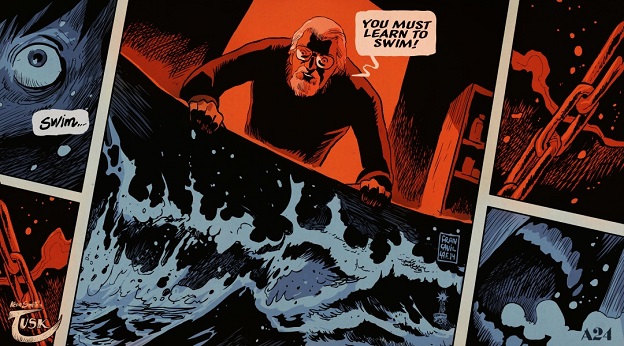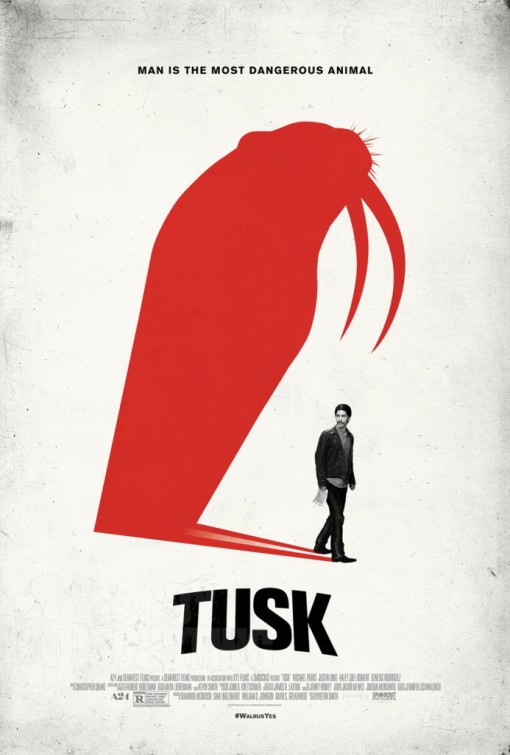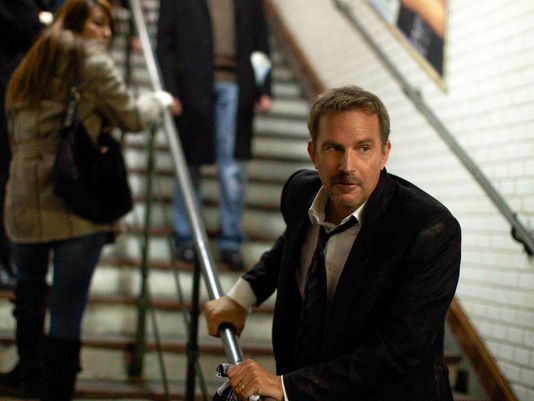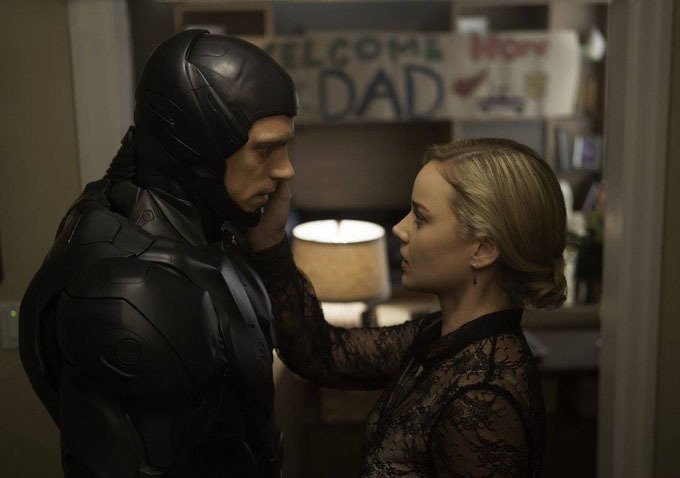’10 Cloverfield Lane’. 7.5 out of Ten. Director: Dan Trachtenberg Cast: John Goodman, Mary Elizabeth Winstead, John Gallagher Jr. Rated: PG-13 (strong language, violence, adult themes) Running time: 103 min.
Do not read this review. Seriously, the less you know going into ’10 Cloverfield Lane’ the better. The J.J. Abrams-produced and Dan Trachtenberg-directed thriller, ’10 Cloverfield Lane’, an unrelenting thrill ride from start to finish, is best experienced by entering it knowing as little as possible.
Now, nearly a decade after the 2008 hit “Cloverfield,” which followed a group of friends documenting a monster attack that wiped out New York City, we have ’10 Cloverfield Lane’. Is this a direct sequel to the first ‘Cloverfield’ film? A loosely-connected prequel, à la ‘Prometheus’? Or is this shameless marketing rejiggery exploiting the ‘Cloverfield’ ‘brand’? Abrams has described it as a “blood relative” which… isn’t really an answer, is it? So, what exactly is IT?
Minor Spoilers Ahead. Serious, if you want to go into this Tabula Rasa…turn back now.
’10 Cloverfield Lane’, begins with Michelle (Mary Elizabeth Winstead) waking up from a car crash. She’s in a survival bunker with an injured leg and pants less. She’s absolutely terrified and confused. She soon discovers she’s the “guest” of one Howard Stambler (John Goodman). He ominously explains that he’s saved her life. There was an “attack”, he says. Outside this bunker everybody is dead and the air is poison.
Then introduces her to another occupant of the bunker, Emmett (John Gallagher Jr.). Emmett says he fought his way into the bunker after having seen an explosion “like something you read in the Bible”. When Michelle makes a run for escape, she’s met with a bloodied woman outside, also desperate to get in. Remembering the title, we begin to think that Howard — aptly described by Emmett as “a black belt in conspiracy theory” — maybe isn’t as crazy as he seems.
So then what are alternatives? Well, that’s the film, right? Is there danger and certain death on the outside, as Howard insists? Or is Howard the true danger? Michelle simply doesn’t have a lot of options. The unorthodox family makes peace for a while, but it’s impossible for so many doubts to simmer for so long without them boiling over. And then? Then we stop our discussion of the story and talk about Trachtenberg’s ratcheting of tension, of putting us in the same claustrophobic world Michelle finds herself in. When a game of Monopoly with a possible psycho starts to look like a welcome form of entertainment, you know you are in a bad place.
Trachtenberg, a first-time feature film director who came to Hollywood’s attention in 2011 when he created a short film based on the popular video game ‘Portal’, is patient building this world, and the actors do a good job inhabiting it. The director works the genre, or the genre within the genre, beautifully for most of the running time, his clean, precise direction keeping the eye trained on key movements and the heart racing almost all the way through. Winstead is a terrific actress, and she makes Michelle’s desperation and inventiveness believable. Goodman is never better than when playing a nut, and while we aren’t sure if that’s what he’s doing here, the possibility makes for an intriguing portrayal.
’10 Cloverfield Lane’ is a tightly constructed piece of entertainment. Trachtenberg knows which buttons to push, bringing us a picture that gleefully places us on edge and confidently nudges us to its conclusion, however satisfactory that may be. In terms of overall structure, the film finds itself slightly lacking as the answers roll around. In order to tiptoe around plot developments, Some eyebrows may be raised, some won’t be. Regardless, at the very least it doesn’t take away from what we’ve been through. Whether it adds up to a decent payoff or not will be up to the individual.
IMO, the best part…If ’10 Cloverfield Lane’ ends up being a hit (relative to budget and expectations of course), it will be an unthinkable situation where a film was announced just eight weeks prior to release and successfully advertised absent both the year-long run up to release and absent much knowledge of what the film is about/what happens during its 103-minute running time. If this works, we could well see more of these smaller-budget, somewhat mysterious “surprise movies” from those with the clout to make it happen.



